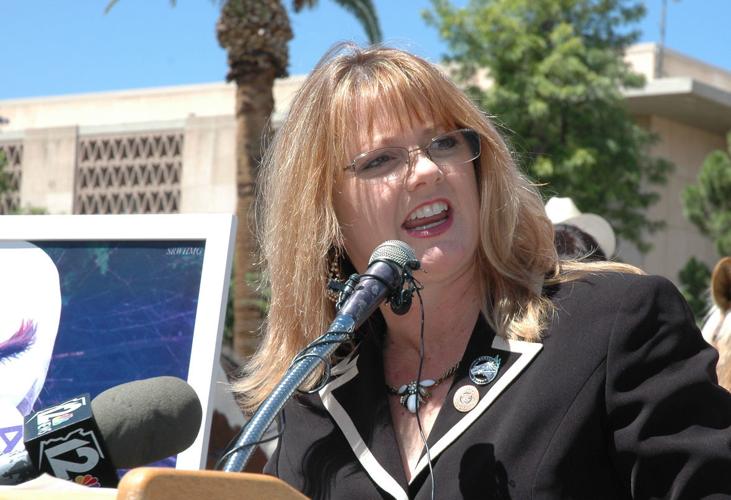PHOENIX — State lawmakers are moving to subject noise complaints to the same standards as speeding violations: Only cops could issue them.
And the officers would have to have measured the sound level with a calibrated meter, much the same way that speeding violations require the use of a calibrated radar gun.
The proposal was endorsed in a 5-1 vote Monday by the House Committee on Regulatory Affairs.
It was spurred by complaints from Mehmood Mohiuddin, owner of the Hitching Post restaurant in Apache Junction, that he has repeatedly been cited by city officials for excessive noise.
He told lawmakers that was based on complaints from neighbors, armed only with videos, about the bull riding that occurs several nights a week at the restaurant.
Rep. Kelly Townsend, R-Mesa, said that’s totally arbitrary.
Central to the issue is a state law that makes it a public nuisance to interfere “with the comfortable enjoyment of life or property by an entire community or neighborhood or by a considerable number of persons” in a way that is “offensive to the senses or an obstruction to the free use of property.”
“So that’s up to interpretation by whomever is reading this,” Townsend said of the current law. “And it’s quite vague.”
She wants the law to reflect that any prosecution under state public nuisance laws based on noise complaints “must include an accurate recording and measurement of the noise made by a peace officer.”
Her House Bill 2389 also spells out the scale to be used, how samples should be taken, and even the technical requirements for the type of sound meter that would have to be used.
Rep. Pamela Powers Hannley, D-Tucson, said that effectively would require all police departments to outfit patrol cars with these meters.
Townsend conceded she has no idea how much that would cost.
But she said it’s fairer than what occurs now where the “evidence” produced against property owners often consists only of cell phone videos from nearby residents. That hardly qualifies as “valid for sound measurement,” Townsend said.
Mohiuddin said those kinds of videos — he claims they have been altered — have been the basis for hundreds of noise complaints that he has had to defend himself against at the city’s board of adjustment. He told lawmakers he has had to sell his home to pay his legal fees.
Nick Ponder, lobbyist for the League of Arizona Cities and Towns, said the legislation would put cities in the business of having to intercede every time someone files a noise complaint.
“The last thing that our police officers want to do is respond to a noise call, frankly,” he said. “They have other things they could be spending their time on.”
Townsend was unconvinced. “I understand a police officer doesn’t want to have to go and see a call on noise,” she said. But Townsend said it’s important for a judge or hearing officer to have all the relevant and reliable evidence.
“If you’re going to charge somebody they’re going to have to defend themselves and spend thousands of dollars,” she said. “We don’t want this happening on a he said/she said basis by somebody who’s disgruntled.”
That argument was buttressed by Braden Biggs, a member of the Apache Junction board of adjustment.
“When one of our police officers cites somebody for a speeding violation they have to do so with a radar gun,” he told lawmakers.
“That gun is required to be calibrated and logged and tracked, consistently,” providing documentation that the officer is able to review and present when there is as hearing, Biggs said. “That should also be the case when it comes to noise violations.”
That still leaves the question of cost.
Rep. Travis Grantham, R-Gilbert, said he did a quick Google search and found sound meters for as little as $19.90 and as much as $376.95. There was no immediate indication which of these, if any, would prove acceptable for use under Townsend’s legislation.
Powers Hannley told Mohiuddin that it sounds like he’s being targeted.
“And it’s very unfair,” she said. “I’m not sure that this bill is the fix for it, though.” One of the reasons for her vote against the measure is the potential cost, she said.
Townsend said she does not want this to be an unfunded mandate on cities, suggesting that if her measure advances she may look to have the state provide some money to communities to purchase the devices.
The measure now goes to the full House following routine constitutional review.






